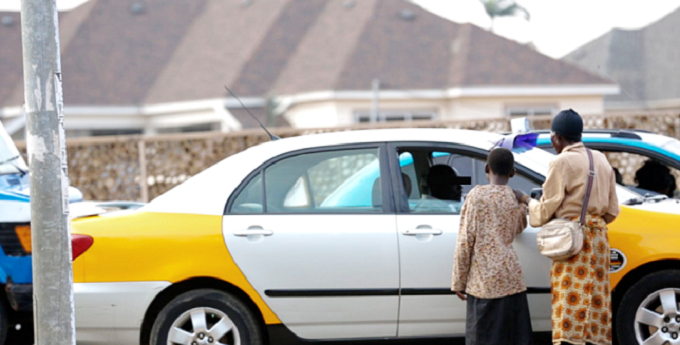
Access and empowerment for people of all abilities
Persons with disability are those who have physical, mental, intellectual or sensory impairments. Accordingly, they include people with slow mobility, people who crawl on their limbs, people who use wheelchairs or crutches, cerebral palsy patients, people who are blind or have low vision, people who are deaf or hard of hearing; people with intellectual or developmental disabilities such as Down’s syndrome or autism, people with mental health problems and those with multiple impairments.
Advertisement
Built environment
Ghana, under the United Nations Convention on the Rights of Persons with Disabilities (CRPD), has undertaken to ensure accessibility on an equal basis with others. Moreover, the Persons with Disability Act 2006 (Act 715) demands that existing buildings that are open to the public must be made accessible.
The built environment comprises buildings and all other things constructed by human beings. An accessible built environment constitutes the design of the building and the management of environments, buildings and spaces so that they can be readily accessed and used by everyone regardless of impairments.
While Ghana is making efforts to advance protections of the rights of people with disabilities, their experiences show that Ghana has much more to do to ensure their full and equal enjoyment of all human rights and fundamental freedoms. The CRPD specifies that people with disabilities should have equal access to societal structures such as the transport system, the built environment, information and communications, other facilities and services that are provided for the public.
However, societal structures lacking the appropriate ramps, lifts or escalators, auditory traffic signals, signage to benefit people with sensory impairments; appropriate wide doorways and corridors, subtitles on public television, physically accessible public transportation stations and vehicles, visual and auditory cues on vehicles, tactile sidewalks or pavements and crossings, sign language interpreters and screen readers, among others act as various barriers in society. Specifically, barriers to the built environment include stairs at entrances, steep ramps with smooth tiles; narrow toilets and bathrooms; service delivery centres without hearing loops and sign language interpreters, non-existent or poorly maintained pavements, inaccessible overpasses or underpasses, lack of aids at street crossings for people with visual impairments etc. For many people with disabilities in Ghana, taking part in the basic activities of daily life, such as taking a stroll, going to work, school, gathering with friends or relatives, shopping, attending cultural events, or visiting the doctor, can be extremely difficult or even impossible.
The unnecessary isolation and exclusion from full participation in society have marginalised them. They are, therefore, generally an oppressed group in society as they have poorer health outcomes, lower educational achievements, less economic participation and higher rates of poverty than people without disabilities. To them, the society rather disables them and not their impairments that hinder their participation in everyday life in the society.
On December 3, 2014, a day which marked the International Year of Persons with Disabilities, persons with disabilities were guests of the Ghanaian Parliament. Nonetheless, most persons with physical impairments were not able to access the chamber of the Parliament House.
The report was, however, silent on the availability of alternative mode of communication used in conducting business in Parliament to benefit persons who are visually, speech and language impaired. Specifically, they need alternative means of communication such as the display of text, large-print, tactile communication, screen readers, and sign language interpretation among others.
This 2014 incident evidently shows how they are excluded from the activities of society. The state deserves credit for the apology which was rendered to those persons with disabilities. The issue, however, is ‘how does Ghana prevent such discriminatory occurrences and remove the barriers in society in a continuous systematic way, gradually yet steadily?’
Expanding opportunities for persons with disabilities
Significantly, the right to accessibility is not a new right, it emanates from the perspective of equality and non-discrimination. It is a key requirement for an inclusive, sustainable society and an empowerment for people of all abilities.
Ghana’s obligation to ensure an accessible built environment comprises taking measures for the identification and elimination of the obstacles in society.
Persons with disabilities have a lot of unharnessed potential and capabilities to become parliamentarians, economists, court clerks, engineers, architects, judges, ministers etc. Regrettably, the barriers in society, especially that of the built environment, are keeping them from achieving these prospects which will eventually lead to a constant annual loss of Gross Domestic Product (GDP). The Facts on Disability in the World of Work (2007) reported by the International Labour Organisation confirm that the exclusion and unemployment of persons with disabilities from the workplace deprives societies of an estimated US$ 1.37 to 1.94 trillion in annual loss in GDP.
Concluding observation
In line with the CRPD, the real life experiences of persons with disabilities from other countries, including Kenya and Nigeria, show that the capabilities of persons with disabilities can be expanded; their well-being, agency and freedom improved; and their human rights realised. Accordingly, the right to accessibility is a moral duty incumbent upon Ghana, the citizenry and all stakeholders to remove the barriers in society; in order to ensure an inclusive society for people of all abilities.
The writer is an International and Comparative Disability Law and Policy Lawyer.
Writer’s email :Estherakua.gyamfi
@yahoo.com




